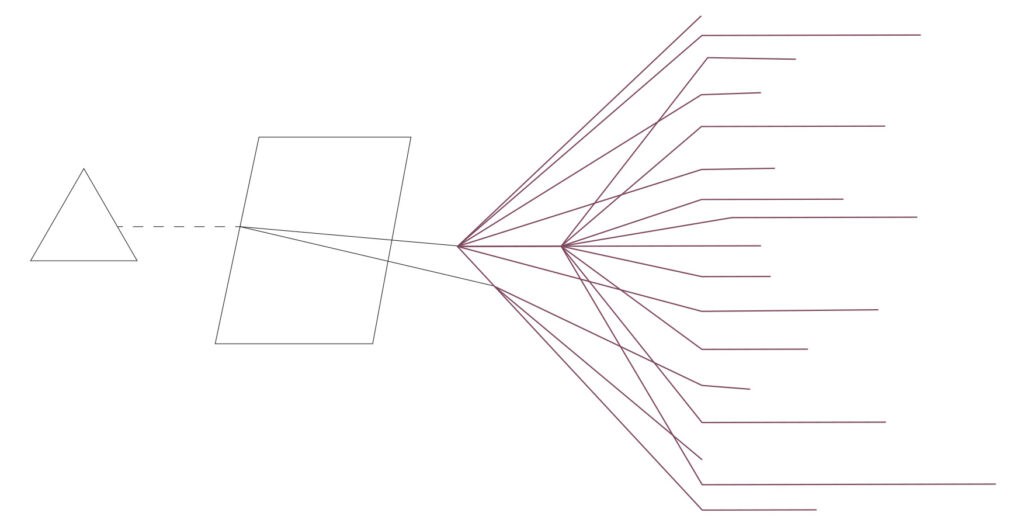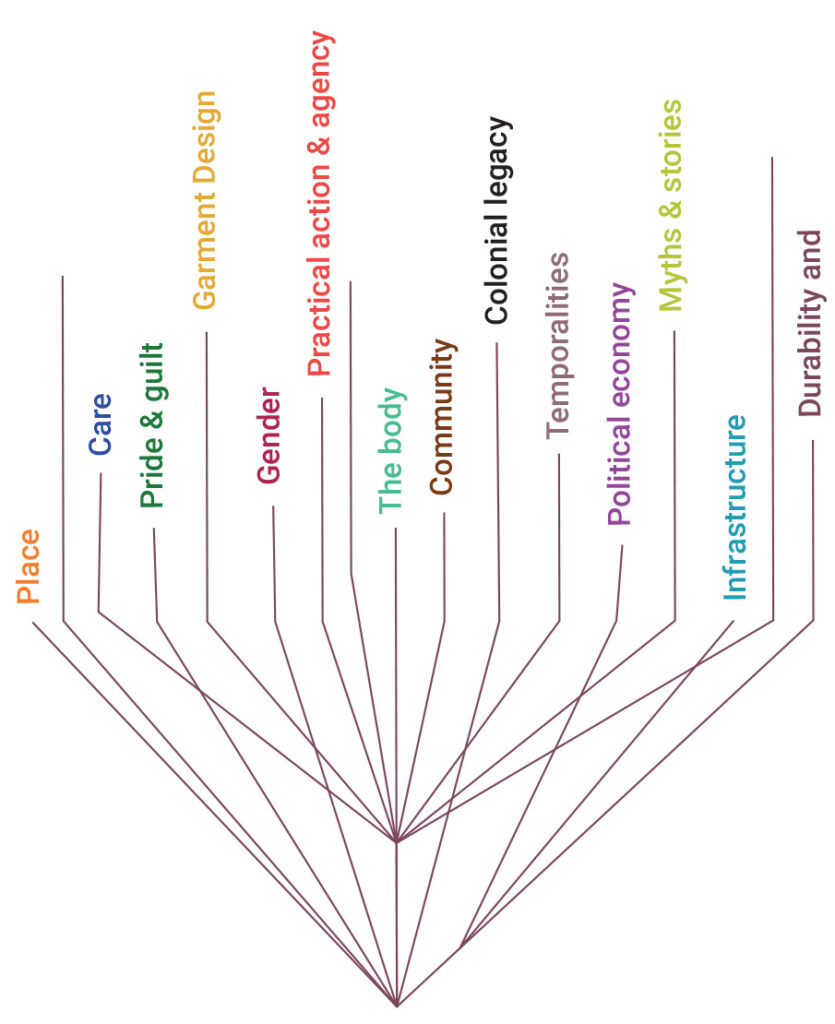
Clothing durability – extending a product’s life in order to keep it being used rather than replaced and therefore increasing product and system resource efficiency – is a much relied upon and encouraged environmental impact reduction effort in fashion. However, the assumptions underpinning such strategies remain invisible. Decentring Durability examines these by exploring the plurality of ways in which durability is thought about and practised and by drawing on insights from semi-structured interviews conducted outside the global north. The diverse perspectives that were shared embody other ways of knowing, valuing or doing durability that go beyond western understandings.
Decentring Durability brings together the decarbonising and the decolonising agendas through emphasis on resourceful practices and attention to the constant reproduction of dominant ideas that directly contribute to the socio-ecological crisis. In the project the plurality of durability ideas and actions help reframe conventional representations of long-lasting clothes. They also become worked examples of decentring practices in both fashion and sustainability.
The decentring emphasis of the project is evident in both content and process. Research produces knowledge and the process by which this knowledge is created matters. Particular attention was given in the research process to: taking care (of ourselves, one another and others), recognition of difference (in ways of knowing), the language being used (or not used), and the handling of data during the analysis and presentation of findings.
Decentring Durability introduces 14 features of clothing durability as starting points for decentred action and understanding of long-lasting clothes. These include some things often found in Euro-American literature on durability, for example a focus on garment design. Other features, like the body, myths and stories, colonial legacies and place, open up different ways of thinking about, valuing and doing durability. These 14 features are in no way definitive or exhaustive. They reflect diverse cultures, skill sets, temporalities, values, economies, taste, methods of co-operation and experiences of durability in specific places, today. Find out more about them and this project in the summary downloadable below.
The Decentring Durability project, part of the LASTING research project funded by the Norwegian Research Council is conducted by Kate Fletcher and Anna Fitzpatrick from the Centre for Sustainable Fashion. We, Kate and Anna, identify as White-British women, who write and speak only in English, which we recognise as having limitations for deep decolonial work. We hope to be conscious of how power relations and our privileges will shape this research. We also acknowledge that the cultural structures that we work within favour individualism over interdependence and unconsciously we carry this with us within our research.
Read the project summary here:
A fuller description of project workings and findings is available here:
